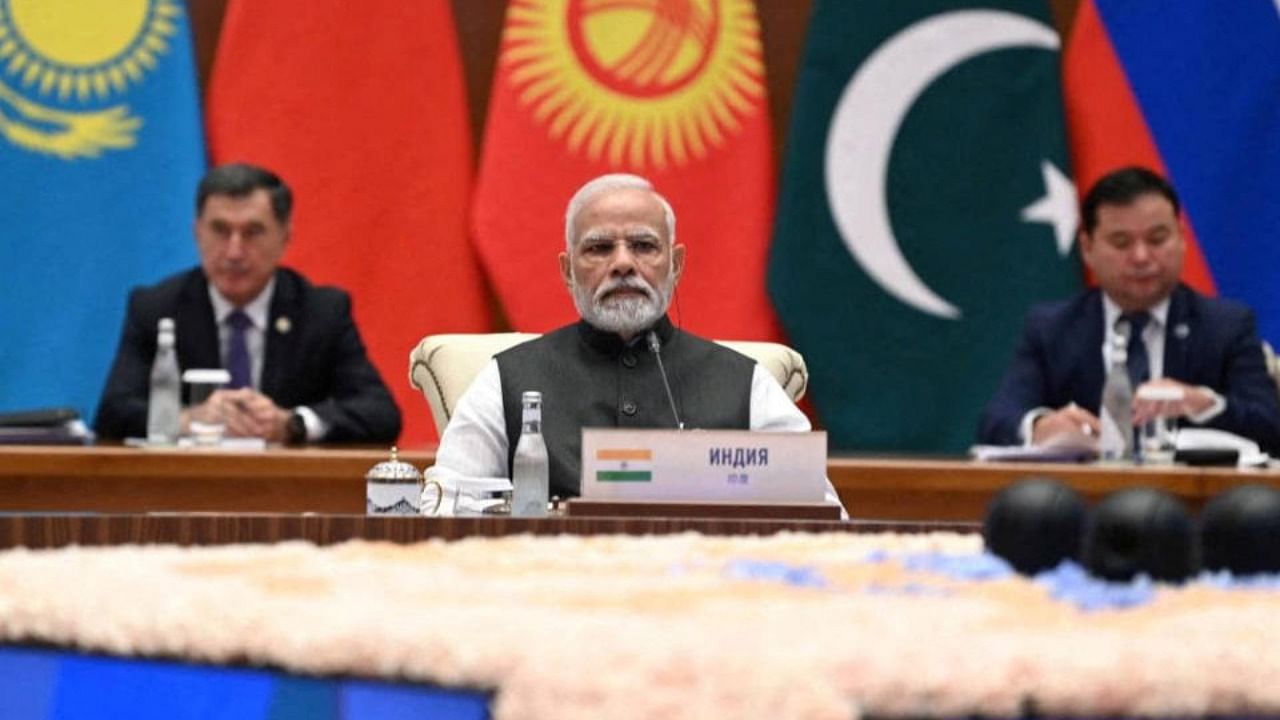
Prime Minister Narendra Modi on Friday tacitly nudged Islamabad to allow India to avail the transit facility through Pakistan for better connectivity, even as he called upon the Shanghai Cooperation Organisation (SCO) to build reliable, resilient and diversified supply chains in the region.
Modi referred to the disruptions in supply chains caused by the Covid-19 pandemic and the Russia-Ukraine conflict, which resulted in food and energy crises around the world. “The SCO must make efforts to develop reliable, resilient and diversified supply chains in our region. This will require better connectivity, as well as it will be important that we all give each other full right to transit,” the prime minister said at the summit of the eight-nation bloc at Samarkand in Uzbekistan.
He apparently sought to send out a subtle message to Pakistan Prime Minister Shehbaz Sharif, who also attended the conclave and was sitting just across the table, when his counterpart in New Delhi delivered his remarks.
Islamabad in the past repeatedly played spoilsport and blocked New Delhi’s regional connectivity initiatives, steadfastly refusing to allow trucks from India to transit through Pakistan to Afghanistan and Iran as well as to the Central Asian states.
Pakistan also blocked connectivity initiatives within the SAARC to link India and the other South Asian nations with Central Asia and beyond. New Delhi last year responded to a call by the World Food Programme (WFP) and agreed to send wheat to Afghanistan in the wake of the acute food crisis in the conflict-ravaged country. Islamabad, however, took months to finally agree to allow trucks to carry grains from India and pass through the territory of Pakistan to Afghanistan.
It was only on February 22 this year that Pakistan finally allowed the trucks of Afghanistan to use its territory to transport the first consignment of wheat and medicines from India to the impoverished country now ruled by the Taliban.
“India supports greater cooperation and mutual trust among the SCO members,” the prime minister said, addressing the summit of the bloc, which is led by China and Russia and seen as a counterweight to NATO. India and Pakistan joined the organisation as members in June 2017.
It was the first summit of the organisation after Russia started its military operations in Ukraine and drew flak from the United States and other western nations.
As regional connectivity initiatives are being blocked by Islamabad, New Delhi has been exploring alternative options, including investing in Shahid Beheshti Terminal at Chabahar Port in Iran. The India Ports Global Limited has taken over port operations at the Shaheed Behesti Port in Chabahar in December 2018 and has been handling cargo since then. The port opens up a sea-land connectivity between India and Afghanistan as well as Central Asia and beyond, bypassing Pakistan. Afghanistan had also started using the port facility to send its first export consignment to India early 2020.
Modi on Friday argued for promotion of cultivation and consumption of millets to mitigate the food crisis around the world. “Millets are a superfood that has been grown for thousands of years, not just in SCO countries, but in many parts of the world, and is a traditional, nutritious, and low-cost alternative to dealing with the food crisis,” the prime minister said. “The year 2023 will be celebrated as the UN International Year of Millets. We should consider organising a 'Millet Food Festival' under the SCO.”
